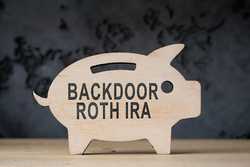UTMA and UGMA accounts are custodial accounts designed to be used to invest money for the needs of a minor child beneficiary. Any adult—parents, grandparents, other family members, friends, and others—can establish and contribute to these accounts. Gifts to a custodial account are irrevocable once made.
While these accounts are often used as a means to save for college expenses, the money in them can be used for any purpose as long as it benefits the minor beneficiary.
What is a custodial account?
A custodial account is a savings or investment account typically opened at a bank, brokerage firm, or other financial institution for the benefit of a minor. The money in the account is invested by an adult custodian, who need not be the person who opens the account, and becomes the property of the beneficiary at an age set by the state in which the account resides. A custodial account is cheaper and less complex than setting up a trust.
What is an UTMA account?
UTMA is an acronym for the “Uniform Transfer to Minors Act,” which allows a minor beneficiary to receive gifts without the aid of a guardian or a trustee. It has replaced the Uniform Gift to Minors Act (UGMA). It accommodates both traditional investments, such as mutual funds, exchange-traded funds (ETFs), stocks, bonds, and cash—and “real” or “tangible” ones, such as real estate, collectibles, precious metals, jewelry, fine art, oil and gas, and other types of real property.
How to use UTMA accounts
UTMA accounts allow parents and other adults to pass money to a child for current and future use. Controlled by an adult custodian, they are often used to pay education costs, but as long as any expenditures are for the benefit of the minor beneficiary, they are allowable.
The minor beneficiary assumes control of the account upon reaching either their majority or a higher age, under rules set by the state. Once they do so, there are no restrictions on how they can spend the money.
UTMA accounts: Pros and cons
Pros:
- Easy to open and maintain. Opening an UTMA account is easy to do and less costly and complex than setting up a trust. Running one is also relatively uncomplicated.
- No contribution limits. There are no limits on the amount of money that can be contributed to the account. However, contributions are subject to the annual gift tax limit, which is $18,000 for 2024, with a lifetime gift and estate tax exclusion of $13.61 million per individual.
- Wide range of investments. UTMA accounts allow for investments in both traditional and tangible assets.
- Limited restrictions on use of funds. Money invested in an UTMA account can be used by the custodian for virtually any purpose as long as it’s for the benefit of the minor beneficiary.
Cons:
- Possible tax implications. Earnings in the account can trigger tax consequences for the minor beneficiary and/or their parents in some cases.
- Can affect college financial aid. Assets in an UTMA account can reduce college financial aid by as much as 25%.
- Contributions are irrevocable. Once you’ve given money to an UTMA account, you can’t take it back.
- No financial restrictions once the beneficiary assumes control. Once the beneficiary reaches the age of majority in their state (or a different age designated by their state), they assume control of the account and can use the money in any way they choose, regardless of the wishes of the custodian. For example, if the objective of establishing the account was to fund college expenses, they can instead buy an apartment or a car or take a world cruise.
What is an UGMA account?
UGMA is an acronym for the “Uniform Gifts to Minors Act,” which preceded the UTMA. UGMA accounts are extremely similar to UTMA accounts. The two major differences are that UGMA accounts can’t invest in real assets or accept contributions from estates as UTMA accounts can. The UGMA has been repealed and replaced by the UTMA in all 50 states and the District of Columbia. This means that UGMA accounts can no longer be opened, though existing ones continue to function until the beneficiary assumes control of the account.
How to use UGMA accounts
UGMA accounts are identical to UTMA accounts in how they function with the above two exceptions.
UGMA accounts: Pros and cons
Pros:
- Identical to those of UTMA accounts, except that investments in tangible assets are not allowed, nor are contributions from estates.
Cons:
- New accounts can no longer be opened.
UTMA vs. UGMA: Comparison chart
|
| Owned by minor beneficiary but controlled by adult custodian until beneficiary reaches a certain age | |
| No taxes on withdrawals. Contributions are not taxed but could trigger the gift tax in certain circumstances. Earnings are taxed. | |
| Can reduce financial aid by as much as 25% | |
| Beneficiary cannot be changed | |
| Can invest in both traditional and tangible assets | Can only invest in traditional assets |
| Anything that benefits the minor beneficiary | |
| Anyone may contribute, including estates | Only living people may contribute |
Key similarities
Uses of the money in the account
Money in both UGMA and UTMA accounts can be used only for the benefit of the account beneficiary. This can include expenses for college or other purposes.
Contributions to the account are irrevocable
Once a parent or other adult contributes money to an UGMA or UTMA, it becomes the ultimate property of the account beneficiary. They can’t take it back.
Beneficiary ultimately assumes control
Ultimately, any money left in the account when the beneficiary reaches either their majority or a predetermined age (both dictated by their state), comes under their complete control and ownership.
Key differences
Eligible investments
UGMA accounts can only be invested in traditional assets. UTMA accounts can also be invested in tangible assets.
Who can contribute
Anyone can contribute to an UTMA account, including estates. Only the living can contribute to an UGMA account.
Availability
UGMA accounts can no longer be opened, having been superseded by UTMA accounts.
Which account is better, UTMA or UGMA?
This is a moot point, as an UGMA account can no longer be opened. That said, an UTMA account is better than an UGMA account, as it has a wider range of possible investment assets and can accept contributions from estates, neither of which an UGMA account can do. Of course, this is why the UTMA replaced the UGMA. It is an improvement.
TIME Stamp: UTMA and UGMA accounts were designed to be an easy way to transfer money to a child
UTMA and UGMA accounts are both custodial ones, but there is no choice to be made between them. The latter type can no longer be opened, though existing UGMA accounts still operate. UTMA accounts are an easy, inexpensive way to save money for (or pass it on to) a child. However, once the child reaches their adulthood and assumes control of the account, the money is theirs to use as they see fit. If you wish to restrict the use of the money into adulthood, a 529 plan (if you want the money used solely for college expenses) or a trust would be the better way to go.
Frequently asked questions (FAQs)
How do you minimize the impact of custodial accounts on financial aid?
You can’t. Both UGMA and UTMA accounts can reduce college financial aid by as much as 25%. This is because money owned by a student counts at a higher rate in the Free Application for Federal Student Aid (FAFSA) calculation than the rate for parental assets, which is only 5.64%.
If financial aid is a key consideration, a 529 plan is likely a better option than a custodial account.
What is the disadvantage of using an UTMA or UGMA account?
There are two potential disadvantages of using an UTMA or UGMA account.
- Earnings are taxed. Income generated by the investments in the account can trigger taxes for the minor beneficiary and/or the account’s custodian.
- College aid can be reduced. Because the beneficiary owns the assets in the account, it can reduce aid by as much as 25%, as opposed to just 5.64% if parents owned the money.
Does an UTMA grow tax free?
No. Earnings in the account are taxable, up to a certain limit, at the child’s tax rate, something known as the “kiddie tax.”
What happens to an UTMA account when the minor turns 18?
This will vary by state. If the state’s age of majority is 18, the minor will assume control of the account. In other states they may have to wait until 19, 21, or even 25 to do that.
The information presented here is created by TIME Stamped and overseen by TIME editorial staff. To learn more, see our About Us page.





